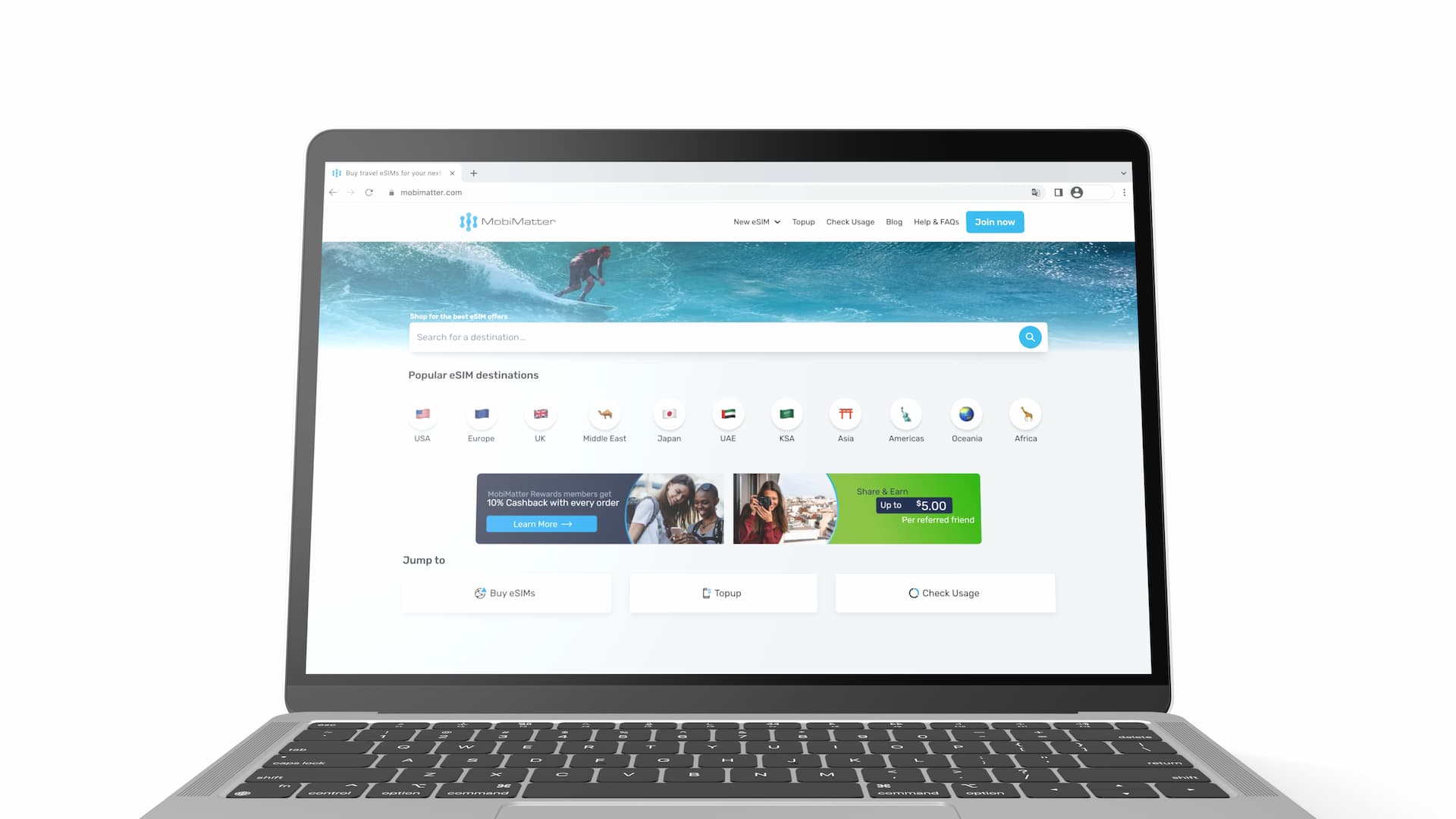Scopri e acquista le migliori offerte eSIM dagli operatori di telefonia mobile di tutto il mondo. Goditi un'esperienza di acquisto veloce e senza problemi e un'assistenza clienti esperta.

Scopri e acquista le migliori offerte eSIM dagli operatori di telefonia mobile di tutto il mondo. Goditi un'esperienza di acquisto veloce e senza problemi e un'assistenza clienti esperta.
Piani dati eSIM MobiMatter per l'Asia orientale
Come comprare
Purchasing eSIM from MobiMatter & Member Benefits Explained
Domande frequenti
MobiMatter offre l'eSIM con dati illimitati per l'Asia orientale?
MobiMatter non offre alcun piano eSIM a dati illimitati per l'Asia orientale. Tutti i piani disponibili in quella regione hanno un limite di dati definito, che varia da 20GB a 34GB, e periodi di validità che vanno da 30 giorni a un intero anno. Poiché ogni piano limita la quantità di dati utilizzabili, i viaggiatori non possono contare su un'opzione a dati illimitati quando viaggiano in Asia orientale.
Per coloro che necessitano di un'imposta di dati più ampia, MobiMatter offre piani a dati fissi che possono risultare più convenienti. Per esempio, il piano APAC 34GB Yearly costa $69.99 USD, è valido per 365 giorni e copre Cina, Hong Kong, Giappone, Corea del Sud, Macau, Taiwan e altre 14 nazioni. Un'altra opzione è il piano Greater China and Taiwan Premium 30GB, con un costo di $26.99 USD e validità di 30 giorni, che copre Cina, Hong Kong, Macau e Taiwan. Queste opzioni a dati fissi offrono quantità sostanziali di dati pur rimanendo economiche, soprattutto rispetto ai tariffe più elevate che potrebbero accompagnare un profilo di uso dati molto intenso.
MobiMatter offre l'eSIM per l'Asia orientale con numero di telefono e SMS?
MobiMatter non offre un piano eSIM East Asia che includa un numero di telefono o la capacità SMS. Tutti i piani East Asia offerti da MobiMatter sono solo dati; i viaggiatori possono utilizzare applicazioni VoIP come WhatsApp, Telegram o iMessage per effettuare chiamate e inviare messaggi tramite la connessione dati.
Quali paesi sono coperti dai piani eSIM di MobiMatter in Asia orientale?
I piani eSIM di MobiMatter coprono tutti i principali paesi dell’Est asiatico, ovvero Giappone, Cina, Hong Kong, Corea del Sud, Taiwan, Macau e Mongolia. I piani che forniscono copertura in questa regione includono Europe Asia and USA (Hong Kong, Giappone, Corea del Sud, Taiwan), Asia Premium Short Trip (Cina, Hong Kong, Corea del Sud, Macau, Taiwan), Greater China and Taiwan Premium (Cina, Hong Kong, Macau, Taiwan), Asia (Hong Kong, Corea del Sud, Macau, Taiwan), Global Special (Cina, Hong Kong, Giappone, Corea del Sud, Mongolia, Macau, Taiwan), Global (Cina, Hong Kong, Giappone, Corea del Sud, Macau, Taiwan), APAC (Cina, Hong Kong, Giappone, Corea del Sud, Macau, Taiwan) e APAC Yearly (Cina, Hong Kong, Giappone, Corea del Sud, Macau, Taiwan).
Riepilogo con Gen AI. Ultima modifica:





